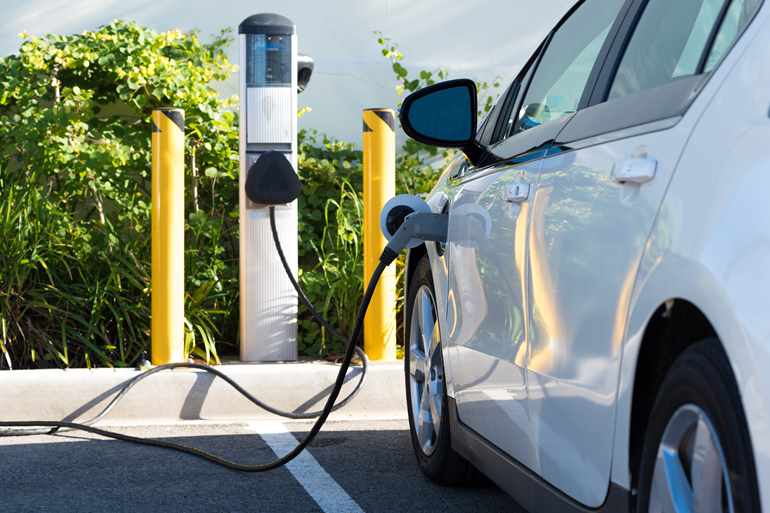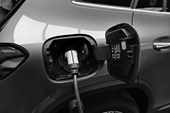
What does the green industrial revolution mean for motorists?
With the Prime Minister, Boris Johnson (PM) announcing a raft of measures to tackle climate change, he has dubbed this the UK's "green industrial revolution." a 10 point plan has been unveiled that is set to create new jobs and bring the country's carbon emissions under control.
The media seized on the PM's plans surrounding motor vehicles and the upcoming changes. So, what does the forthcoming revolution mean to you as a motorist?
The death of fossil fuel-powered cars
From 2030, there will be no new cars sold in the UK that are powered by petrol or diesel. This means that electric cars are the way forward, although some hybrid cars will still be allowed.
This means that, if you are someone who likes to upgrade their car regularly, in just 9 years' time, if not before, your next car is going to be an electric one. Although electric cars have grown in popularity over recent years, for some, the cost has been one of the factors that have seen them continue to return to petrol and diesel models (https://www.theguardian.com/environment/2020/sep/04/higher-price-of-electric-cars-a-concern-for-more-than-half-of-uk-consumers).
Are these upcoming changes going to hit motorists in the pocket, or are there savings to be made?
The cost of electric cars
The upfront cost of electric cars has been cited as one of the main reasons that people have not already made the switch. As time has gone on, these prices have started to drop although they are still more expensive than their petrol and diesel equivalents. With the government keen for us to make that move, they already offer a grant of up to £3000 against the price of an electric car.
One point to bear in mind with the price of electric cars is how the value depreciates. This is, unfortunately, part and parcel of purchasing a brand new car, but if you have used any form of finance for this and the car is written off, you could be left with substantial outstanding debt. One way of mitigating this risk is by taking advantage of GAP insurance, UK.
The cost of electric cars
The upfront cost of electric cars has been cited as one of the main reasons that people have not already made the switch. As time has gone on, these prices have started to drop although they are still more expensive than their petrol and diesel equivalents. With the government keen for us to make that move, they already offer a grant of up to £3000 against the price of an electric car.
One point to bear in mind with the price of electric cars is how the value depreciates. This is, unfortunately, part and parcel of purchasing a brand new car, but if you have used any form of finance for this and the car is written off, you could be left with substantial outstanding debt. One way of mitigating this risk is by taking advantage of GAP insurance, UK.
Does it cost more to insure an electric car?
At present, you can expect your insurance premiums to be higher for an electric car when compared to petrol or diesel-powered vehicles. The main reason for this has been down to a lack of insurance companies offering to insure electric cars and a lack of any information for insurers to base their quotes on.
Part of the information used by insurance companies when setting premiums is the cost involved in any repairs. With no historic data to consider, many companies played it safe and opted to charge more for the insurance. As electric cars become more popular, data is emerging which means that insurers can make informed decisions. With 9 years to go before all new cars will need to electric, there is time for more data to be collated and for more insurance companies to enter the scene, bringing premiums down.
Are electric cars cheaper to run?
Despite the original purchase price and the potentially higher insurance premiums, a report in 2019 stated that, overall, electric cars are cheaper to run. This is due to a combination of fuel costs, grants available, and the cost of car tax when compared to petrol or diesel car.
With electric cars being exempt from road tax in the UK, the government has identified a £40 billion funding hole. When all new cars are electric in 2030, there will be a need to recoup some of this lost revenue. One proposal put forward could see motorists being charged for using roads.
Is the green future a bright one for motorists?
Fears of being forced to pay higher purchase prices along with increased insurance premiums may fill motorists with dread. The future, however, is likely to see some changes. With the cost of manufacturing electric cars, and battery development being a key part of this, coming down, the purchase price of electric cars is already reducing. With 9 years before all new cars will need to be electric, there is still time for prices to come down even further.
With the government investing £1.3 billion in additional charging points, it is clear that there is now no reversing the decision that has been made. It is one that motorists will need to embrace, but with ever-improving performance being offered by electric cars, the hope would be that the driving experience isn't diminished. So the green future is still one that motoring enthusiasts can relish.












